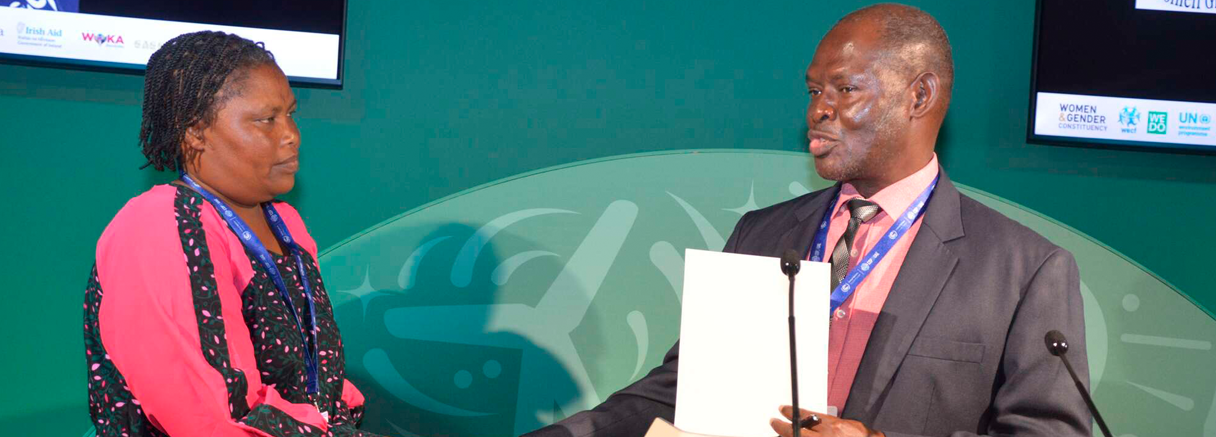Indigenous women win Sh800,000 global award at COP28 for work to protect Mau forest

Naiyan Kiplagat has a long list of what climate change has taken away from her. She was born and brought up among the Ogiek, an indigenous community in the Mau Forest complex.
“In reflection, there was a lot of honey, which we used as food and in wedding ceremonies,” she says.
Then, a lot started happening. The rains became erratic and less, crop harvests reduced and honey, a lifeline for their community, became scarce.
“It was obvious that something was happening, but at first, we didn’t know that the losses were directly linked to climate change. It became clearer when I got married to the Maasai community in Narok County,” she offers.
To the pastoralists, the threats of climate change had become even dire forcing them to move far away from their homes in search of pasture.
“A common trend was that the husbands would go away as their wives and children stayed behind. Many of these households were being left behind with no food or resources to support them,” she offers.
The stories that these women shared whenever they met were a catalog of hunger at their homes, frustrations, and devasting consequences. “There were families that married off their daughters young for sustenance,” she says.
In 2005, she led the women in her village into forming the Paran women’s group in Narok County. The group addresses gender inequality issues and climate change.
“We are 3,000 members domiciled in 64 groups. We propagate and manage tree nurseries of indigenous plants, we have also adopted some parts of the Mau Forest which we are rehabilitating, and we conduct environmental education to the neighbouring schools. Also, we make briquettes, supplementing the use of wood as fuel. We cannot speak about climate change without talking about gender inequality because as women and children, at least in our group, we suffer the most,” she says.
Naiyan has attended at least three previous COPs before. What’s most special about this, she tells Nation, is that her group has won an award for their work in climate action.
“This is a great day for indigenous women in Kenya. I’m so excited that indigenous women from a remote village in Narok have been recognised in a global arena. Since 2018, we have entered in various competitions that recognise those in climate action, but this is our first win. Today, our efforts have been rewarded,” says the 49-year-old mother of four.
While dedicating the award to other members of the group, Naiyan says the award is a result of using traditional knowledge, innovation, and collectiveness that has taught them to face challenges as a united force instead of dealing with them in an individual capacity.
She said the group will use the cash award to intensify its resilience projects to reduce poverty among women.
“The award money will be a big boost to us because it has not all been smooth. We have overcome many hurdles, especially financial constraints, to buy the seedlings,” she says.
The vice-chairman of the United Nations Climate Technology Centre and Network, Fred Onduri said the award was an indication that given opportunity, women are capable of fighting the climate crisis.
“Indigenous women have extensive knowledge to address local challenges as well as taking advantage of the opportunities to save mother planet. This victory is a good example of what women can do to showcase why they are relevant in supporting gender participation in climate change and I urge the group to replicate it and share the knowledge and skills with other people in the community not only in Kenya but also across the borders,” says Mr Onduri.
The awards are organised by the women and gender constituency of UNFCC and granted annually to grassroots initiatives and non-governmental organisations tackling the climate crisis while promoting gender equality.